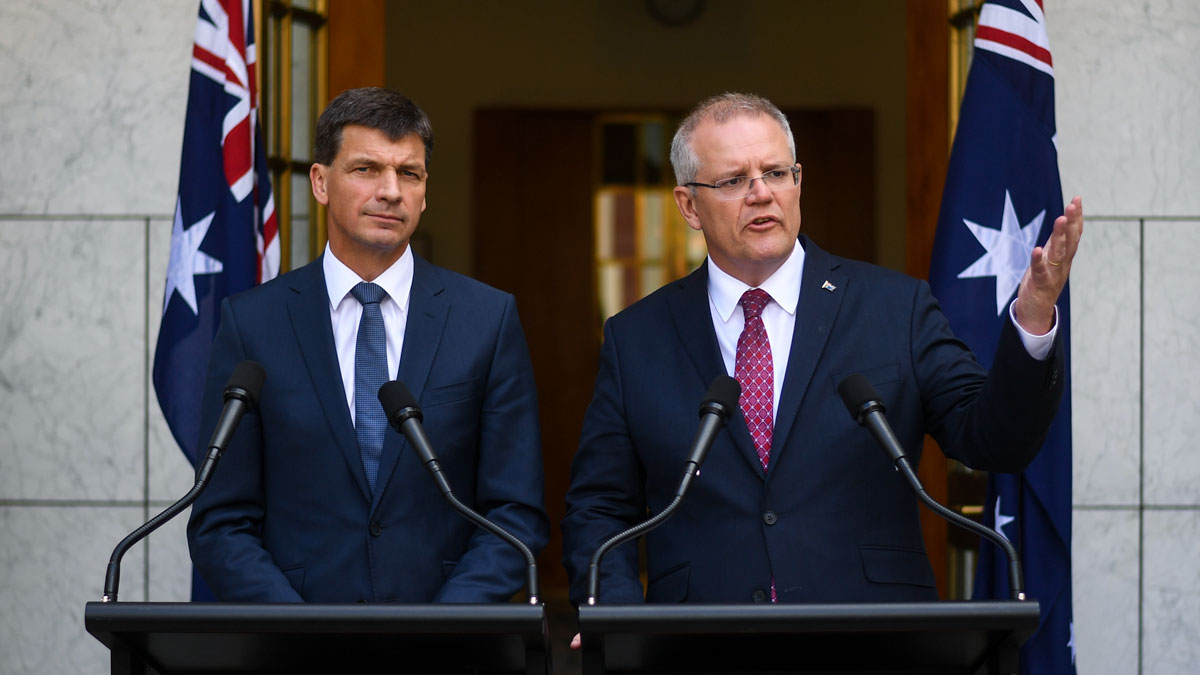Prime minister Scott Morrison has finally kick-started a six-week-long election campaign, travelling to Canberra on Sunday to offically call the federal election for May 21.
There has never been so much at stake for Australia’s climate and energy policies.
In his first press conference following his visit to the Governor-General, Morrison spoke about Australian’s having a choice. In a way, he is right.
Australia does face a choice: Does it elect, for a fourth term, a Coalition government that has seen Australia relegated to pariah status internationally – to the point of being named and shamed by the UN Secretary-General – because it has run a wrecking ball through clean energy policies, offered fig-leaf commitments to cut greenhouse gas emissions, and actively embracing the expansion of Australia’s fossil fuel industries. Or does it change.
The Coalition government – as it has generally been during Morrison’s time as prime minister – has been dishonest about Australia’s level of climate action.
The Anthony Albanese-led Labor opposition will run on a climate policy platform that commits Australia to stronger emissions reduction targets – a 43 per cent cut by 2030 – along with initiatives to cut industrial emissions and boost electric vehicle uptake.
Labor’s target still falls short of the level of action being called for by the world’s climate scientists, but it would help underpin investment in transforming Australia’s energy system, pushing Australia’s renewable electricity share to as high as 82 per cent before the end of the decade.
Labor’s platform would also see as much as 89 per cent of new vehicle sales being electric models by 2030, helping Australia catch up with international peers in embracing the emerging market for electric vehicles – a market that has been neglected by the Coalition.
More than any election in recent history, there is a real prospect that neither of the major parties will win a parliamentary majority in their own right and will be forced to negotiate with a range of minor parties and independents to secure power.
The successes of independent candidates and the Australian Greens could be a game-changer for Australia’s climate and energy policies.
The Australian Greens will be campaigning hard to boost their representation in both houses of parliament, but particularly so in the senate, where they have a real chance to increase the number of Greens senators to as high as a dozen.
This would likely land the Greens in a balance of power position in the upper house and a strong position to negotiate for stronger climate policies.
The major parties may also have to contend with an increased number of independents in parliament, with the rise of the ‘climate independents’ movement that could likewise seize the balance of power in the House of Representatives.
These independent candidates are posing a genuine challenge to several incumbent Coalition members in vulnerable seats, targeting the Morrison government’s lacklustre track record on climate action.
Funded by the successful ‘Climate 200’ fundraising vehicle, independent candidates like Allegra Spender, Georgia Steele, and Zoe Daniel will be hoping to make their way into parliament alongside the likes of Zali Steggall, Helen Haines and Rebekha Sharkie.
These independents will target incumbent moderate Liberals like Dave Sharma, Trent Zimmerman and Tim Wilson – who have been part of a Morrison government that has been antagonistic to climate action.
Should enough of these ‘climate independents’ win seats in parliament, they could collectively hold the balance of power in the house of representatives and the ability to decide who forms government.
In terms of energy and climate – the election is likely to be a choice between the reinstatement of incumbent energy minister Angus Taylor – or perhaps his offsider Tim Wilson – and the appointment of Labor’s Tesla-driving Chris Bowen.
Taylor has shown himself to be one of the least effective energy ministers on record. His time in the Coalition cabinet has been marked by regular political controversies, a failure to deliver on any substantive reform agenda and finding himself on the outer with Australia’s major energy market players.
Taylor’s refusal to undertake genuine engagement on the transition to clean energy has seen him sidelined by his state and territory counterparts, who have stepped in to fill the leadership vacuum.
Taylor has also found himself on the outer with major players in the energy sector, who have grown to fear Taylor’s attempts to interfere and frustrate closures of ageing coal-fired generators and investments in replacement clean energy projects.
Taylor has used his time as energy minister to channel funds into the expansion of the fossil fuel industry, redirect renewable energy funding to the government’s preferred fossil fuel-friendly technologies like carbon capture and storage, and stacking key energy agencies with the appointments of friends and fossil fuel executives.
Taylor’s last act as energy minister, before the election was called, was to reappoint his former political adviser, John Hirjee to the board of the Australian Renewable Energy Agency, alongside one of the Coalition’s preferred economic modellers, Anna Matysek.
The re-election of the Morrison Government would see a continuation of Australia’s status as a climate laggard for a further three years, as well as the further hollowing out of Australia’s remaining energy institutions.
A change of government could see Australia return to the international fold and unlock the substantial economic opportunities being created by the transition to clean energy.
See also: Australia needs a government that actually wants wind, solar and electric cars
And: Taylor locks in key board seats at end of busy week trying to prop up coal










